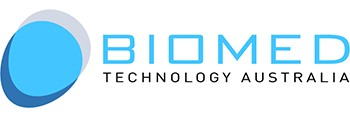Medical Fabrics That Work as Hard as You Do
Did you know that trillions of germs live in your body helping to digest food or even fight harmful bacteria that can lead to infections? You may also be surprised to know that a 2014 study found that 22% of hospitals had a positive reading for the MRSA virus, 33% of hospitals have a positive reading for the VRE virus and 57% of contaminated objects within hospitals were transferred to human hands.
However, the medical environment is not the only place riddled with germs that can potentially make us sick. Researchers have discovered that aeroplanes, kitchen sinks and even the workplace are breeding grounds for dangerous germs. With advancements in the medical grade fabric manufacturing business, many industries can benefit from medical textiles and antibacterial fabrics to prevent the spread of germs in the workplace. As a leading medical fabric engineering company, we believe hospitals, airlines, household products and more can all benefit from medical grade fabrics that work as hard as they do.
Antibacterial Fabrics in Healthcare Settings
Antibacterial fabrics (also referred to as antimicrobial fabrics) are technical textiles that aim to destroy or prevent the growth of microorganisms, particularly those that can result in harmful diseases and illness. Evidently, in healthcare environments, such fabrics help play a crucial role in preventing the further spread of disease to patients with generally already low immune systems.
In fact, without the presence of medical grade healthcare fabrics with antibacterial properties, many objects would be ridden with germs and therefore increase the chance of contamination. For medical industries, this has serious implications. For example, fabrics that are contaminated with harmful germs have to be replaced more frequently in comparison to medical textiles with antimicrobial features, therefore being quite costly to industry and potentially putting patients at risk.
While antibacterial and hypoallergenic fabrics are ever-present in healthcare setting, one application of medical grade, antimicrobial vinyl is in the creation of waiting room chairs and beds. Vinyl is an excellent choice of healthcare fabric to avoid the spread of illness as not only does it continuously work to fight germs, it is also highly durable, prevents lingering odours and is easy to clean and maintain.
Medical Grade Fabrics for Airlines
A study by the World Health Organisation (WHO) found that in 2006, over 2 billion passengers boarded an aircraft and the confined space for a lengthy period of time potentially contributed to the spread of various diseases. In fact, the study noted that the main source of infection is the result of being in close proximity to an infected individual and the continuous circulated air in aircraft cabins which contribute to the spread of airborne illness. Furthermore, WHO’s study also noted that pathogens and germs can remain on board the aircraft and contaminate common surfaces even after passenger departure.
While cleaning agents and disinfectants help to remove germs, it is important to be aware that many materials used onboard aircrafts are susceptible to damage. In fact, WHO’s report notes metals which are used in aircraft construction can corrode upon exposure, cables and wires can deteriorate and furnishings may not uphold their fire resistance properties. In order to combat these potentially hazardous issues and maintain a hygienic environment, medical grade technical fabrics provide immense benefit.
In fact, some airlines such as China Airlines have implemented medical grade air filters to remove allergens from the air and help protect passengers from contracting harmful diseases. However, just as the medical industry implements antibacterial healthcare fabric into their linen, curtains and other common surfaces, the airline industry could utilise such technical textiles to prevent contamination, minimise costs associated with replacements and potentially reduce the harm to equipment that is associated with the frequent exposure to disinfectant products.
As a leading medical fabric manufacturing company with a long-standing partnership providing germ-free, medical grade and antibacterial fabrics to produce CPAP supplies for Resmed, Biomed has a thorough understanding on the importance of technical textiles to suit a variety of purposes. For more information on how medical grade fabrics can help fight the spread of germs in your industry or to see how our team could help you manufacture medical grade products, please do not hesitate to contact the professional Biomed team on (02) 9758 3855.


